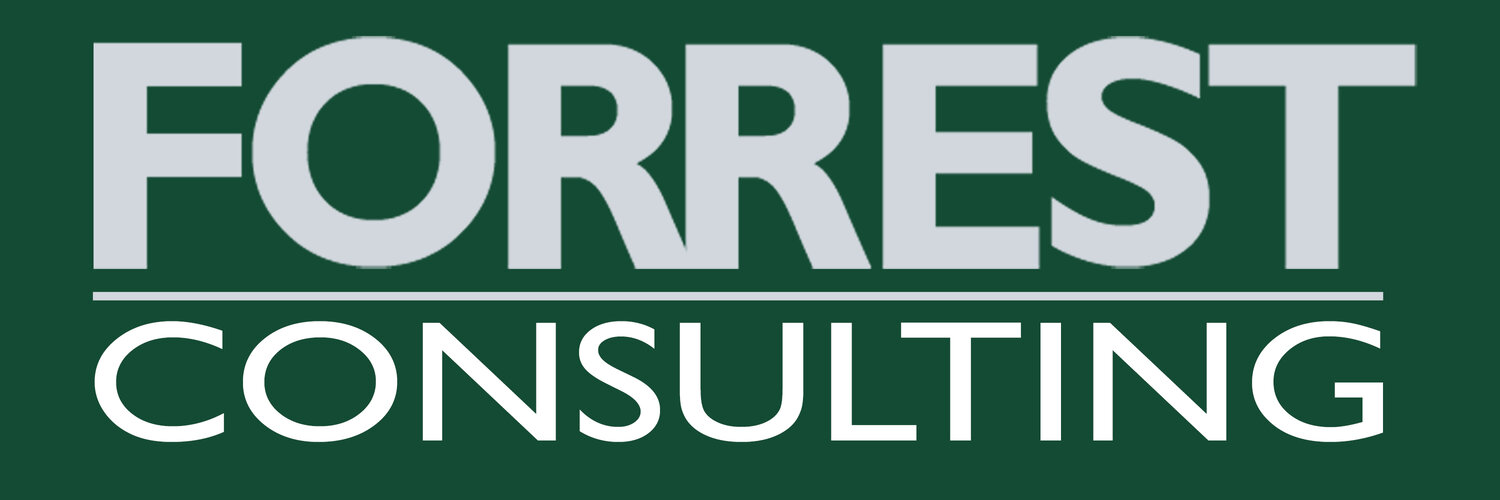
Strategic Thinking & Strategic Action
Fostering strategic thinking and strategic action by organizational leaders since 2007.
Archive
- October 2025
- August 2025
- July 2025
- June 2025
- May 2025
- April 2025
- March 2025
- February 2025
- January 2025
- December 2024
- November 2024
- October 2024
- August 2024
- July 2024
- June 2024
- May 2024
- April 2024
- February 2024
- January 2024
- December 2023
- November 2023
- October 2023
- July 2023
- August 2021
- April 2021
- March 2021
- February 2021
- November 2020
- October 2020
- September 2020
- July 2020
- June 2020
- May 2020
- March 2020
- October 2019
- September 2019
- July 2019
- April 2018
- January 2018
- December 2017
- November 2017
- October 2017
- September 2017
- August 2017
- January 2017
- December 2016
- November 2016
- October 2016
- September 2016
- August 2016
- February 2016
- October 2015
- March 2015
- November 2014
- October 2014
- September 2014
- July 2014
- May 2014
- March 2014
- February 2014
- December 2013
- September 2013
- August 2013
- March 2013
- February 2013
- December 2012
- October 2012
- June 2012
- May 2012
- March 2012
- February 2012
- January 2012
- December 2011
- November 2011
- October 2011
- September 2011
- August 2011
- June 2011
- May 2011
- April 2011
- March 2011
- February 2011
- April 2010
- October 2009
- June 2009
- May 2009
- April 2009
- March 2009
- February 2009
- May 2008
- February 2008
- August 2007
-
Action-oriented bias
- Nov 17, 2017 Trump trap: Action-oriented bias Nov 17, 2017
-
Approach-avoidance
- Sep 21, 2016 Approach or avoid? Sep 21, 2016
-
Bell curve bias
- Mar 28, 2020 We are biased by the bell curve Mar 28, 2020
-
Business model
- Aug 27, 2025 Redesign your business like an architect (so it finally fits your vision) Aug 27, 2025
-
Choice
- Oct 5, 2016 Managing choice Oct 5, 2016
-
Coaching
- Jan 7, 2025 Pick the best: Don’t let the bad drive out the good Jan 7, 2025
- Jan 22, 2024 Coaching and change Jan 22, 2024
- Apr 1, 2021 Let’s not be complacent about our ignorance! Apr 1, 2021
- Mar 10, 2021 So much can go wrong. Here’s how to make it go right. Mar 10, 2021
- Mar 10, 2021 Why settle? Go for the gold! Mar 10, 2021
- Mar 10, 2021 It's time for spring training. Are you ready to play on the A Team? Mar 10, 2021
-
Consensus
- Dec 6, 2016 No consensus for consensus Dec 6, 2016
-
Decision biases cases
- Oct 19, 2020 Short-sighted thinking: The case of the “hot new smartphone” Oct 19, 2020
- Sep 10, 2020 Changing our thinking to feel better. Yes, we do that! Sep 10, 2020
- Oct 24, 2019 Remember, history is written by the survivors Oct 24, 2019
- Oct 22, 2019 Beliefs about a group matter Oct 22, 2019
- Oct 15, 2019 Not knowing we don’t know Oct 15, 2019
- Sep 19, 2017 Case 12: Not missing the opportunity to lose billions Sep 19, 2017
- Aug 29, 2017 Case 11: Getting bitten by not seeing it Aug 29, 2017
- Aug 29, 2017 Case 10: When what worked didn’t work Aug 29, 2017
- Aug 28, 2017 Case 9: The climbers who perished by succeeding Aug 28, 2017
- Aug 28, 2017 Case 8: No accounting for incompetence Aug 28, 2017
- Aug 16, 2017 Case 7: Blind or incompetent? Perhaps both… Aug 16, 2017
- Aug 16, 2017 Case 6: Seeing what he wanted to see Aug 16, 2017
- Aug 13, 2017 Case 5: Getting burned by past successes Aug 13, 2017
- Aug 2, 2017 Case 4: I’m the boss, so I am right! Aug 2, 2017
- Aug 2, 2017 Case 3: The experts were wrong Aug 2, 2017
- Aug 2, 2017 Case 2: The battle that didn’t go as expected Aug 2, 2017
- Dec 12, 2016 Failure without facilitation: The French Canal Disaster Dec 12, 2016
- Oct 26, 2015 Decision traps, flaws and fallacies: Learn from my unexpected big decision Oct 26, 2015
-
Decision making
- Nov 6, 2024 Rise of the poker pros: 10 lessons for great success Nov 6, 2024
- Jan 5, 2024 What’s your magic number? Jan 5, 2024
- Oct 9, 2023 AI revisited: Will it ever make perfect decisions? Oct 9, 2023
- Sep 4, 2019 “The instant of decision is madness” Sep 4, 2019
- Apr 23, 2018 Despite our growing ignorance, we must decide Apr 23, 2018
- Apr 12, 2018 Can “Big Data” deliver “the right decision”? Apr 12, 2018
- Jan 18, 2018 The worst accident: “We’re going!” Jan 18, 2018
- Mar 8, 2015 10 surprising mental traps: Why we make bad decisions Mar 8, 2015
- Mar 10, 2014 Often wrong but never in doubt Mar 10, 2014
-
Decision making biases
- Mar 10, 2021 So much can go wrong. Here’s how to make it go right. Mar 10, 2021
-
Evidence
- Dec 16, 2016 Misuse of evidence can zap your strategy Dec 16, 2016
-
Evolution
- Aug 6, 2016 Smart phones on the savannah Aug 6, 2016
-
Gratitude
- Oct 25, 2017 Thank you for our connection Oct 25, 2017
-
Group decisions
- Nov 15, 2016 #2 error: Not using the group advantage Nov 15, 2016
- Oct 22, 2015 Open up your thinking: Make better decisions in a group process Oct 22, 2015
-
Leadership
- Nov 14, 2016 #1 error: The leader problem Nov 14, 2016
- Feb 1, 2016 Leaders who mislead: A tale of two movies Feb 1, 2016
-
Pre-mortem
- Sep 12, 2016 Thinking “as if” Sep 12, 2016
-
Risk
- Jun 9, 2020 The Black Swan and us Jun 9, 2020
- Jan 10, 2017 The risk of ignoring risk Jan 10, 2017
- Oct 14, 2016 Risk and regret Oct 14, 2016
-
Strategic planning
- Jul 16, 2025 Why strategy fails… and how to make it succeed Jul 16, 2025
- Jun 27, 2025 New! FastTrack™ for supercharged strategic planning Jun 27, 2025
- Jun 19, 2025 Plans can go astray. Check your course and expect the unexpected Jun 19, 2025
- May 26, 2025 Self doubt and strategic planning May 26, 2025
- Jan 4, 2025 California High Speed Rail to nowhere: Lessons for implementing our plans Jan 4, 2025
- Dec 17, 2024 Why New Year’s resolutions fail: The problem of implementation Dec 17, 2024
- Nov 10, 2024 Are you ready to bat? Nov 10, 2024
- Oct 9, 2024 Drift and big change challenge our success Oct 9, 2024
- Aug 19, 2024 Get real when you plan! Aug 19, 2024
- Apr 10, 2024 Bridge the strategy gap Apr 10, 2024
- Feb 23, 2024 Don't waste your time planning, unless... Feb 23, 2024
- Dec 18, 2023 The secret sauce of successful plan implementation Dec 18, 2023
- Nov 20, 2023 How to build commitment to change, revisited Nov 20, 2023
- Oct 3, 2023 Success Starts With a Big Vision Oct 3, 2023
- Aug 24, 2021 Sometimes you get what you need Aug 24, 2021
- Feb 25, 2021 Do you measure up? Feb 25, 2021
- Jul 28, 2020 Forget business as usual Jul 28, 2020
- Oct 9, 2014 What’s driving your organization? Oct 9, 2014
- Feb 20, 2014 This is not an infomercial Feb 20, 2014
- Feb 11, 2014 The Big Fail Feb 11, 2014
- Mar 12, 2013 Parsimony and planning Mar 12, 2013
-
Strategic thinking
- Feb 11, 2025 What to do when disaster ensues Feb 11, 2025
- Feb 27, 2024 Desirable difficulties Feb 27, 2024
- Jan 13, 2024 Business model question: Produce or provide? Jan 13, 2024
- Jan 5, 2024 What’s your magic number? Jan 5, 2024
- Jul 5, 2023 Think wide to succeed: How will you compete? Jul 5, 2023
- Mar 25, 2014 Flight 370 and strategic thinking Mar 25, 2014
-
Strategy
- Oct 8, 2025 Will the new “big idea” go haywire? Oct 8, 2025
- Apr 23, 2025 Lead from strategy, don’t waste time Apr 23, 2025
- Mar 17, 2025 Are you getting your share? Mar 17, 2025
- Feb 24, 2025 Know who you are up against! Feb 24, 2025
- Jan 18, 2025 Be better than the competition Jan 18, 2025
- Jul 23, 2024 Your pricing says it all… But what does it say? Jul 23, 2024
- Jun 23, 2024 We are people, not transactions Jun 23, 2024
- May 22, 2024 Is excellence - or failure - ahead? Answer five questions to know May 22, 2024
- Apr 8, 2024 What do your customers expect? Apr 8, 2024
- Nov 13, 2023 Demand a great brand! Nov 13, 2023
-
Success
- Jul 24, 2019 22 principles I have learned from being an athlete Jul 24, 2019
-
Sunk cost fallacy
- Mar 21, 2015 Sunk cost fallacy: Throwing good money after bad Mar 21, 2015

Act on your ideas!
There's the idea...and then there's making it happen. I think we should be focusing on the "ideas versus execution" challenge. The idea is important, but the execution is more important. Seeing the mountain and saying, "hey, let's climb it" is far different than actually climbing it.

10 entrepreneurial mistakes
Serial entrepreneurs like me typically retain strong memories of our first big entrepreneurial venture, sometimes great, sometimes not so great. Whatever the outcome, we are best served by learning from what we did, so in future ventures we avoid what did not serve us well.

Timing is everything
The speed of strategy is not related to calendar time. Timing for the right market move, investment or shift in focus is predicated on opportunity or threat, and ability, not the start of the quarter or year. Sometimes the need for commitment to or change in strategy is slow in developing, other times it arises lightning fast. The annual budgeting and resource allocation cycle is of course a key step in plan implementation. But it should not drive the strategic planning process. Finding winning strategies and getting on the road to implementing them should be driven by opportunity, need, threat, change, competition and other similar factors. Like budgeting, planning should be recurring, but just making it a rote process ahead of budgeting disconnects it from the events that make planning so important. Fundamentally, the time to plan is when you either don't have strategies that are pulling you to an idealized future vision for the organization or when your strategies are not longer effective or appropriate.

What’s it called?
The nomenclature issue has vexed me throughout my planning career, most recently as I prepared to sit for the Strategic Management Professional certification examination. The study materials and references covered the gamut of planning practices, systems and approaches. It was obvious that no standard language exists in strategic planning. (The CPAs and CFOs have it easy, with accounting organizations and governmental bodies promulgating accounting standards. As long as you know what set of accounting standards you are following, you can look up the term and know what it means!)
Focus, people!
Over the past month I have been interviewing stakeholders for a client's strategic planning process. The interviews have sought feedback on strategic options open to the client. The options range from "keep on being whatever the client wants us to be" to "identify a few big opportunities and really commit to tackling them." The feedback I am getting from these interviews is that most stakeholders believe the organization will grow much faster and have much greater impact and success if it opts to focus on a few big opportunities rather than continue to "be what the client wants us to be." Is that a surprise? Maybe not, but in thinking about most of my client work over the years I recognize that lack of focus has been a big issue. In fact, I think lack of focus is a bigger barrier to greater success than often recognized. Surely it's a continuing challenge that most of us grapple with.
Let’s ask the crowd
A key aspect of developing transformational strategies is understanding the landscape that needs to be traversed by the organization on the way to greater success. Strategic planners develop an environmental scan to identify the external factors that are likely to have a large impact on the organization as it goes down the road. Factors to be considered in an external environmental scan might include but are hardly limited to economic indicators and forecasts, legislative and governmental trends, technological developments, energy and ecological factors, social trends and values, agricultural and food forecasts, labor concerns and trends, transportation forecasts, and much more. The question arises: Where does one get this information on a timely and comprehensive basis?

Think before stretching
Talking this morning with a serial entrepreneur whom I highly respect, the question of business scale came up. What's the right size for your business? Should you stretch to grow?
When it suddenly changes
Disruption. Is it good or bad? While listening to Michael Raynor of Deliotte make a presentation on his great new book, The Innovator's Manifesto, I got to thinking about the two-sided nature of disruption in markets.

Beneath the visible iceberg
I have long understood that strategic planning and strategic management are about successfully adapting to change. A new construct I was exposed to that addresses the difficulties of change management is Stephen Haines' Iceberg Theory of Change. It states that while the focus of change management is almost always on on "what to do" - the 13% of the iceberg that is visible, which Haines calls "content" - the success of adapting to change depends critically on what's not visible.
Get on the right road
We once teamed up with a major accounting firm to help rescue a publishing and market information company that was in perilous shape, with rapidly worsening financials and competitors aggressively chasing its long-time customers. While many things were wrong with this organization, the major issue was that senior management and the Board continued with "business as usual" for many, many years while markets, customer needs, competitors, technology and everything else changed around them.
Avoiding strategic error
Do you know the story of the frog who is placed a pot of nice cool water, gets comfy, does not notice the water is slowly heating up and eventually boils to death?Do you also know the story of the lemming who is, as always, running with the pack, has little warning that those ahead are plummeting off an unseen cliff edge and, just like the others, plummets as well?Well, Bank of America was neither the frog nor the lemming in 2008 at the height of the financial crisis when it purchased Countrywide Financial Corp. for $4.1 billion. No, it was obvious Countrywide was awash with toxic mortgage assets that everyone had been fleeing from.So why did B of A stab itself in the chest? What led it to make such an egregious strategic error?
Take a deeper look
The lens we look through changes what we see. It's easy to think a simple and familiar underlying process is at work or fundamental truth is at the root and that we are seeing part of it or its results.While something is certainly underneath what we see, I think we are foolish to reduce it to something simple, familiar and fundamental. After all, when we think about it we know that what we see is really the result of a phenomenally complex system or, better stated, the interaction of phenomenally complex systems. Indeed, we can see the effects or results of these systems - a flower, a stock market drop, an entrepreneurial opportunity - but it is impossible to fully grasp or describe the system and how it works. Only when we isolate parts or pieces can we see dimly lit clues about how it works - mapping DNA to explain the human body, a stock price prediction model that poorly fits reality, volumes of market data that indicate changing consumer preference.
You can see it coming
Look at the cloud. That's certainly a place I would look if I were trying to envision a future for an organization and understand changing market and business dynamics. The buzz about SaaS (Software as a Service) and cloud computing has been increasing, with Steven Jobs' recent announcement of Apple's iCloud service just the latest entre' on the growing menu, The potential for cloud computing and SaaS to bring paradigm shifting opportunity and disruption was brought home at a Proformative seminar for CFO-types that I just attended. My mission as a general manager, strategist and marketer infiltrating this seminar was to gain a better understanding of how medium-sized and growing organizations can gain traction by employing newer financial tools.
Making innovation imperative
Over the past few weeks I have encountered the topic of innovation at seemingly every juncture: At a symposium on facilitating group innovation. In a business school strategy group discussion of writings on the process of innovation and how to foster it in organizations. Through the work of a non-profit that provides STEM (science, technology, engineering and math) education to kids to encourage invention. From an insightful trade association executive who spoke about the need for associations to launch innovation processes to assure their sustainability. From this immersion in innovation thinking, a big take away is that innovation starts with a person. It starts from a person being creative, open, curious and willing to entertain change.
What you say still counts
In the social media tsunami, many of us are running hard to stay ahead of the wave. The overall volume of conversation is rising rapidly, as are the demands and opportunities to participate.Like any new paradigm, this one calls on us to learn new ways of thinking and behavior. For instance, how do we best mine the brevity of the 140-character Twitter post? What bit can we toss in as our blog entry that will not just be something that says "me too"? How do we find the time to check in on LinkedIn and Facebook and monitor Twitter while carrying on our analog lives and not offending those we need to interact with face-to-face? How can we best use all these platforms to carry our strategic business messages and not just banal observations? How do we seamlessly weave them into our work lives to increase our scope and power as professionals?
Encouraging adaptation
How suited are today's management systems to the challenges at hand? That was the question raised in a discussion among a group of University of Chicago trained strategists.
The biggest factor
Next time you are looking at an organization that is not performing well, ask yourself, what's the cause? Of course, the cause could be one of many: Lack of funds and investment, insufficient or unsuited staff, ineffective technology, misguided marketing, "me-to" branding, high cost structure, misunderstanding of customer needs, and so on. At the University of Chicago Booth School of Business Management Conference last Friday, Professor James Schrager described a handy three-option construct he uses to parse the success or failure of organizations.
